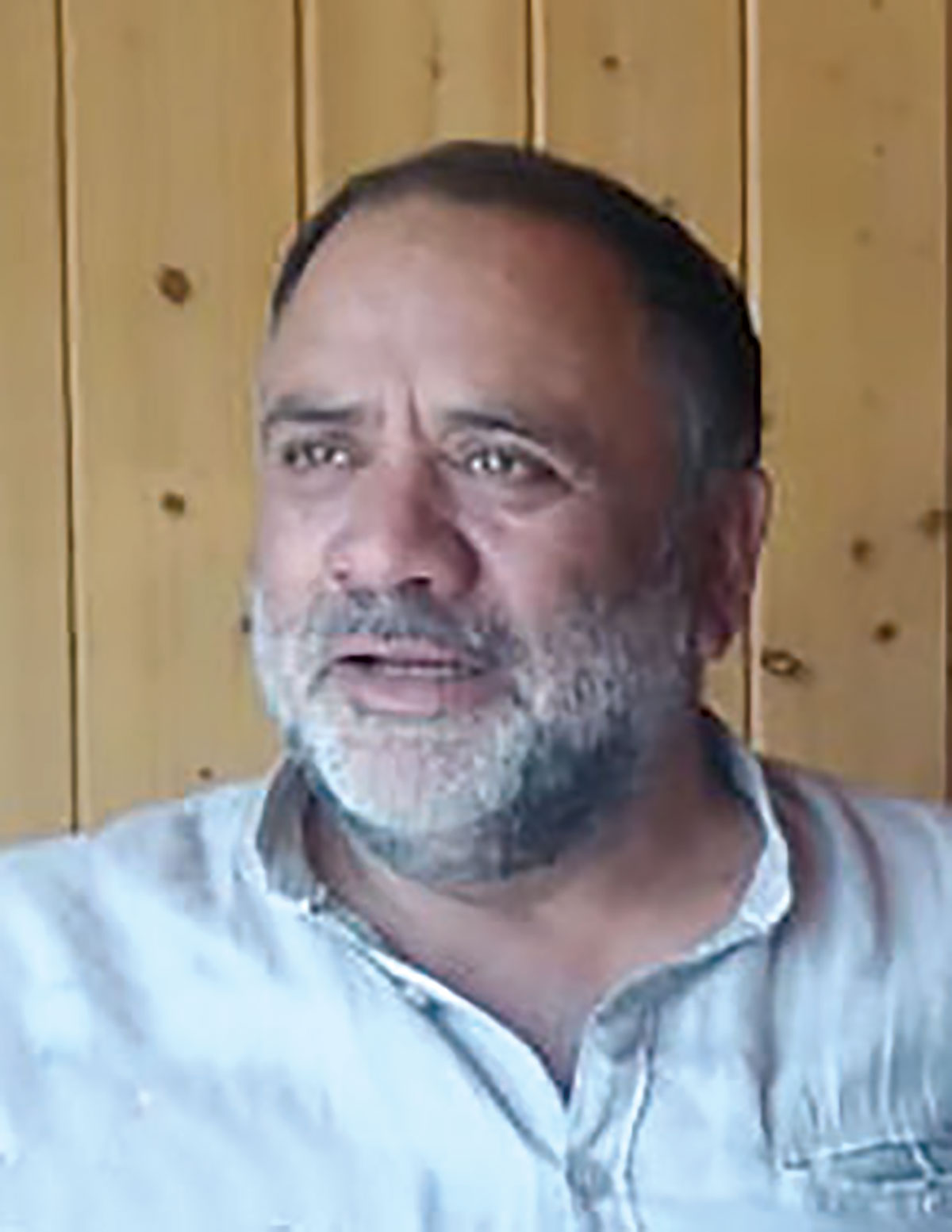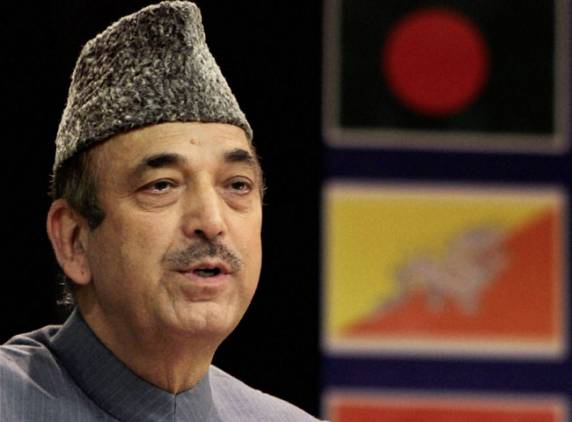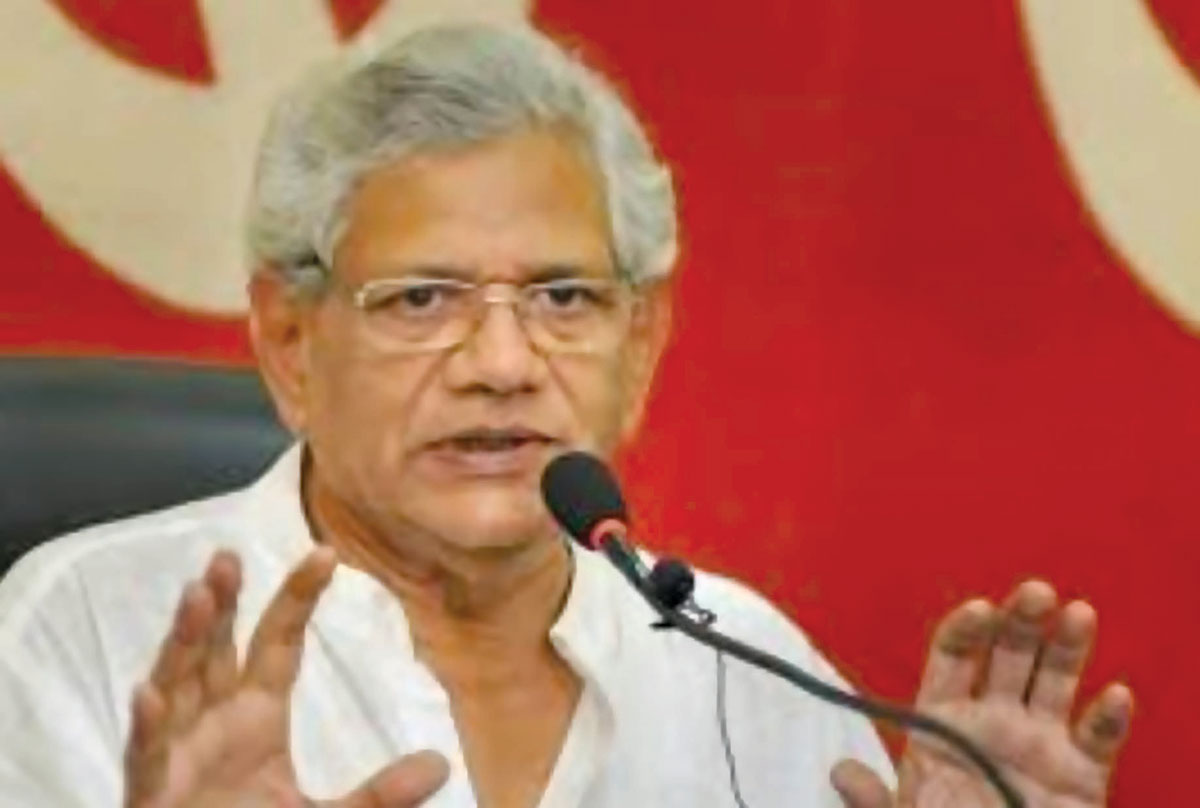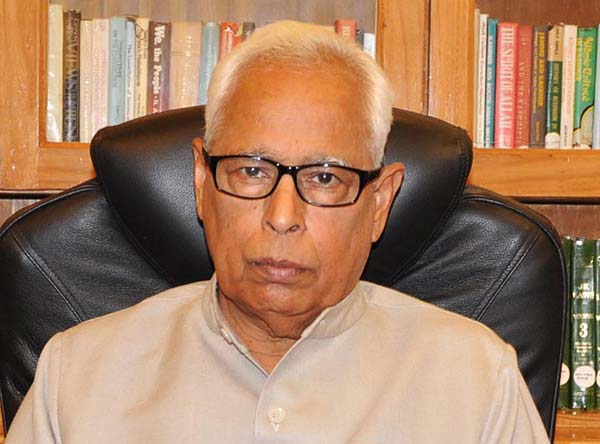SHAHNAWAZ AALAM (July 1958- September 2019)
 Jammu and Kashmir’s top Rural development academician, Prof ShahnawazAalam, 61, died On September 17. Cancer in his lungs was detected in February last and for the last seven months he was shuttling between various hospitals within and outside Kashmir. For the last three days of his life he was communicating by writing only. He was laid to rest on September 18 at their ancestral graveyard at KakMohallaNowhatta near Naqshband Sahib.
Jammu and Kashmir’s top Rural development academician, Prof ShahnawazAalam, 61, died On September 17. Cancer in his lungs was detected in February last and for the last seven months he was shuttling between various hospitals within and outside Kashmir. For the last three days of his life he was communicating by writing only. He was laid to rest on September 18 at their ancestral graveyard at KakMohallaNowhatta near Naqshband Sahib.
Aalm was a professor at the Jammu and Kashmir Institute of Management, Public Administration and Rural Development (IMPARD), a multi-disciplinary institution where government trains its human resources and initiates key policy studies. Since his appointment in IMPARD in 1987, Aalam trained a few generations of officers, elected representatives and might have done as many as 300 policy and background papers for the government.
Born to Ahmadullah Shah, A Waqf Board employee, he was the youngest of his three brothers – KhursheedAalam (politician), MuzaffarAalam (a retired government employee), and SartajAalam (a Delhi based businessman). They have three sisters as well one of whom is wife of AbulRouf, former JK Bank President.
Aalam did his masters, pre-doctorate and PhD from the University of Kashmir. His thesis was on Kashmir agrarian economy under Prof Bashir Ahmad Khan.
His colleagues remember him as the most popular faculty, an honest intellectual, an impressive trainer and a knowledgeable mentor. He was the main driving force behind the J&K EDI having a sprawling structure outside the confines of Rajbagh, where it was initially supposed to operate from. He even drafted the SKEWPY, the main policy for which EDI is known for.
A liberal, Aalam was a silent helper to the needy – his colleagues say some still visit his IMPARD chambers, a voracious reader and mutton-eater; he knew English, Persian, Arabic, Urdu and Kashmiri and was a class singer to his classmates. His wife is a homemaker. He is survived by two sons – Mohsin (works for JK Bank), and Shuib (still in his 12th class), and a daughter who is settled.
Authorities drove his elder brother from jail on January 18, morning and permitted him to be part of the burial and funerals. By around 6 pm, he was driven back to the Centaur Lake View Hotel, where Kashmir’s political class is in custody since August 5. Two days later, he was sent home on parole for four more days.
Aalam lived his life like a king. For his entire career, he did not avail an official vehicle. In run up to September 2014 floods, he spent literally one month in personally cleaning the IMPARD like a labourer. In 2013, almost four years ahead of his superannuation, the always smiling Aalam submitted his papers for voluntary retirement. His request was not accepted. Finally he resigned in December 2016, when he still had 18 months to go. Post-retirement, he turned down at least three major consultancy offers – two had come from the central government, insisting that he wishes to spend time with his family. Though he died in a hospital, he lived up to his words – he stayed with his family and in last three days would communicate by writing notes. He literally wrote his death. Before he stopped talking, he would sing the famous ghazal: AayKatib-e-TaqdeerItnaTouBataday, Kya Main Nay KiyaHai, KyounMuj Say KhafaHai.
SRINAGAR
 While the Supreme Court has permitted Congress leader Ghulam Nabi Azad to visit Kashmir, the governor’s administration has sent back former BJP minister YashwantSinha back from Srinagar airport. However, his three colleagues’ journalist Bharat Bhushan, civil society members KapilKak and SushobaBharve were permitted in. Sinha leads the Concerned Citizen’s Group on Kashmir. At the airport, Sinha was served an order terming him to be a “threat to maintenance of public order” and quickly another order directed him to fly back. Sinha told reporters in Delhi that he defied the restrictions but instead of arresting him, he was forcibly put on a Delhi flight.
While the Supreme Court has permitted Congress leader Ghulam Nabi Azad to visit Kashmir, the governor’s administration has sent back former BJP minister YashwantSinha back from Srinagar airport. However, his three colleagues’ journalist Bharat Bhushan, civil society members KapilKak and SushobaBharve were permitted in. Sinha leads the Concerned Citizen’s Group on Kashmir. At the airport, Sinha was served an order terming him to be a “threat to maintenance of public order” and quickly another order directed him to fly back. Sinha told reporters in Delhi that he defied the restrictions but instead of arresting him, he was forcibly put on a Delhi flight.
DELHI

After being denied permission, Communist leader Sitaram Yechury finally took the Supreme Court help in flying his ailing comrade Yousuf Tarigami to Delhi. Now Targami has become the first Kashmir politician to open his mouth almost 40 days after the clampdown. “This is a Kashmiri, an Indian speaking. We must also get the chance to live,” Tarigami was quoted saying in Delhi. “We only ask you to take us along. An average Kashmiri asks for nothing, we don’t ask for the stars, we don’t ask for the heavens. We just want the chance to merge with you.” He further said: “All they say is that no one is dying. People are dying slowly. There is suffocation. And that’s why I appeal, not to the rulers to whom my voice may not reach, but to the common public and the poor that we also want to live. We must also get the chance to live.”
RAFIABAD
Nazir Ahmad Bhat, a resident of Rafiabad, spent days in Srinagar to seek help in getting his son-in-law freed. Tanveer Ahmad and Bhat’s daughter were supposed to marry on September 8; weeks after their nikah took place. However, a day after the abrogation of Article 370, Ahamd, a Sarpanch was arrested by police and moved to a jail in UP. Now his father in law is trying to seek some support. He is carrying the nikahnama to explain his crisis. Bhat wants his release for wedding so that it enables his daughter to go her home so that she can take care of his ailing parents.
MUZAFFARABAD
For many it was a windfall. Days after Pakistan Prime Minister Imran Khan visited the Pakistan administered Kashmir; the local government announced “generous” allowances to its employees. The Utility Allowance for Civil Secretariat officers is up to Rs 20,000. A special allowance up to fifty percent of the basic pay was announced for all the twenty pay scales.
DELHI
Syed Mubarak Hussain, a US based neuroscientist and LS Shashidhara of the Indian Institute of Science Education and Research (IISER) joined hands to help the students who missed their deadline in fresh admissions across the world. They have identified the case and are making requests to the universities to retain the berths for the Kashmir students. Hussain has said that some Kashmiri students who had confirmed admissions under China Scholarship Council have missed the bus because of communication blockade. Professor Shashidhara, currently with Ashoka University, has written to many universities so that the students do not miss the precious year. Hussain said they have helped 400 students by raising money from their pockets to fund the fees as students were unable to access their parents.
RUSSIA
Their battles apart, India and Pakistan have not changed their off shore. The armies of India and Pakistan have joined their counterparts in Russia in multinational counterterrorism military drills. China-led Shanghai Cooperation Organization (SCO) has organized the exercises in Orenburg. SCO was established in 2001, with Russia, China, Kyrgyzstan, Kazakhstan, Tajikistan and Uzbekistan as its founding members. Last year India and Pakistan had participated in the SCO anti-terror military drills, also hosted by Russia, after becoming full members of the organization in June 2017. India and Pakistan armies have also been working together in UN peacekeeping missions.
DELHI

Kashmir’s longest serving governor N N Vohra has not spoken a single word on Kashmir when he released David Devadas’s The Story of Kashmir in Delhi. He was asked pointed questions about his assessment but he did not respond. He did find “critical gaps” in the book, however. Vohra who took over as Kashmir governor at the peak of 2008 unrest and was replaced by Satya Pal Malik, a decade later, was the person who had met every single legal expert in India on Article 370 and submitted a detailed report to then Prime Minister Atal Behari Vajpayee.
CHANDIGARH
Punjab is the only state that recently witnessed a series of protests over the abrogation of Article 370. After a few Punjab-based outfits under the banner of Kashmiri KaumiSangharshSamarthanSamiti decided to hold a protest at the Dussehra Ground, police imposed Section 144. Police stopped the protesters from reaching the Mohali venue. However, symbolic protests were reported in 14 districts by BhartiKisan Union (Ugrahan). Some protesters like in Ropar breached the security siege and blocked highways. They burnt effigies of Prime minister and Punjab Chief Minister Amrinder Singh. “People of Kashmir were not asked about their choices before removal of Article 370 and 35-A which is against the written agreement,” Jhanda Singh, president of the BKU (Ugrahan) was quoted saying. “Rather, after its removal, restrictions have been imposed in Kashmir with claims that all is good in Kashmir.” A few days later, a delegation of Sikh activists attempted getting into Jammu and Kashmir. They were stopped on the state border and sent back.
New York

Part of the Kashmir tamasha would be outside the UN General Assembly. The Gates Foundation, world’s largest private nonprofit run by Microsoft promoters Bill and Melinda Gates are honouring Prime Minister NarendraModi by conferring him its annual Goalkeepers Global Goals Award for providing 500 million people in India safer sanitation. Lot of people opposes the idea. Justice For All coalition has delivered 100,000 petition signatures to the Foundation’s Seattle headquarters on September 16. Some big names have dropped out. Actors JameelaJamil (The Good Place) and Riz Ahmed have pulled out of the ceremony. Executive director of the Polis Project SuchitraVijayan and adjunct professor of law at Georgetown University Arjun Singh Sethi have written in The Washington Post against the award being given to Modi. But the Foundation is going ahead and it is expected to lead to protests. The event coincides with the UN General Assembly gathering.
There is also another event on September 22, when Modi will appear at the Howdy Modi event to be attended by 50,000 Indian Americans in Texas. US president Donald Trump will also attend the meeting and focus is expected to be on trade.
These events are taking place at a time when the White House is under pressure to ease the tensions between India and Pakistan. As many as seven lawmakers have top American diplomats in India and Pakistan to help the two countries de-escalate on Kashmir. “This presents tremendous danger to global peace and a clear national security risk for the United States,” Congressmen Donald Beyer, Raul Grijalva, Alan Lowenthal, Andy Levin, Ted Lieu, James McGovern and Ilhan Omar have written. “Pakistan and India are both valued allies, crucial to our interests in the region, including the Afghanistan peace process.” They have specifically mentioned US Ambassador to India Kenneth Juster, and Chargé d’ Affaires of US Embassy in Pakistan Paul W. Jones “to do everything in your power” to get Indian authorities to release detainees taken on arbitrary pretexts, end the communications blackout, allow press access, and “emphasize the centrality of Kashmiri voices in determining the future of Jammu and Kashmir.”
This could be yet another reason for Trump to keep talking on Kashmir. He told reporters that he will meet both Indian and Pakistani premiers in the next few days while claiming that “a lot of progress is being made” in defusing tensions. “I’ll see Prime Minister Modi and I will — we’ll — be meeting with (prime ministers of) India and Pakistan,” said Trump, adding: “And I think a lot of progress is being made there, a lot of progress.” Modi and Khan are scheduled to address the UN on September 27 in New York.
But the situation has pushed the Indian diplomacy to the extremes. Right now, newspaper commentaries suggest, they are trying their best to douse the flames within the American politics and the civil rights workers to ensure that the event is incident free.
This has become all the more important because in anticipation of the UN speeches, slated for September 27, the UN Secretary General Antonio Guterres insisting that dialogue between India and Pakistan “is an absolutely essential element for the solution of the [Kashmir] problem.” His spokesman quoted him saying: “Well, our capacity is related to good offices, and good offices can only be implemented when the parties accept it. And, on the other hand, it relates to advocacy, and the advocacy was expressed and will be maintained”.
from Kashmir Life https://ift.tt/2lybG1Q
via IFTTThttps://kashmirlife.net
No comments:
Post a Comment